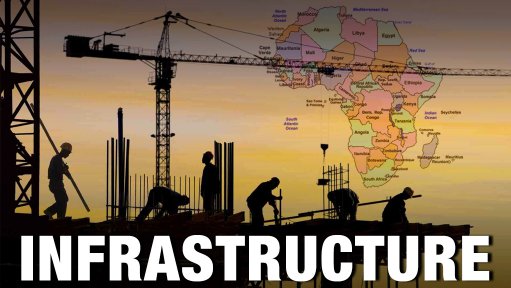
While South Africa was certainly facing significant challenges with regard to expanding economic infrastructure and promoting access for all, at municipal level the greatest challenge currently faced was that of maintenance, South African Local Government Association’s municipal infrastructure services directorate: roads and transport planning specialist Sibulele Dyodo said on Thursday.
Speaking as part of a Development Bank of Southern Africa Infrastructure Dialogues panel, he said while over the past 20 years South Africa had addressed infrastructure upgrade backlogs and added new infrastructure, maintenance would be one of the key issues in future.
“[In a way, South Africa] has neglected maintenance to focus on upgrades and new infrastructure,” Dyodo said.
He stated that the funds required for maintenance of economic infrastructure had to be factored into the tariffs for services, such as water and electricity, to ensure that when the maintenance had to occur the funds were already available.
Also speaking as part of the panel, Deloitte associate director JP Labuschagne reiterated the importance of maintaining the infrastructure the country already had.
He stated that currently South Africa had a short-term focus of “let’s build, but then we walk away”. However, Labuschagne said there had to be a link between the funding of the construction and subsequent maintenance of an asset.
He agreed with Dyodo, stating that the greatest scope to do this was indeed located within local municipalities.
However, Labuschagne stated that there was a “great level of under spending” on this level, “but [municipal level] is also where the greatest challenges lie”.
Speaking on these challenges, Dyodo pointed out that the funds collected from users of economic infrastructure, such as water and electricity services, were often used to patch the funds needed for the establishment and maintenance of social infrastructure, as the money received from National Treasury for this was not sufficient and, therefore, the money collected was not used for what it was initially intended.
Dyodo further said the issue of depreciative accounting also had to be addressed to ensure that provision was made in tariffs structure to replace assets in the longer term.
He added that municipalities were also grappling with the challenge of refurbishing infrastructure and explained that much of the country’s infrastructure had been inherited from the apartheid government.
However, that infrastructure now had to service many more people than prior to 1994 and, therefore, refurbishment was necessary, but not always carried out effectively.
Dyodo noted that refurbishment was closely linked with maintenance.
“[In future] municipalities need more [integrated] planning, more skills to address the challenges and funding will be key,” he concluded.